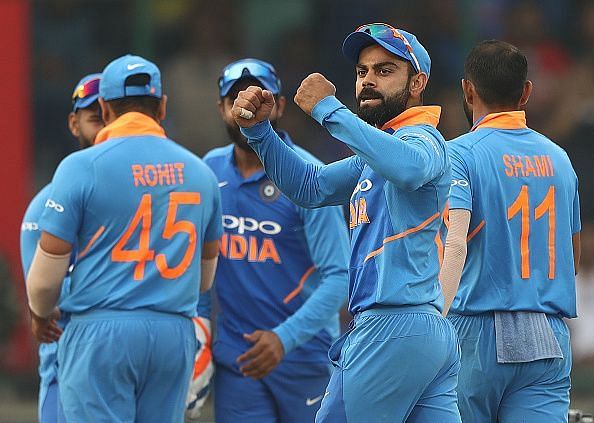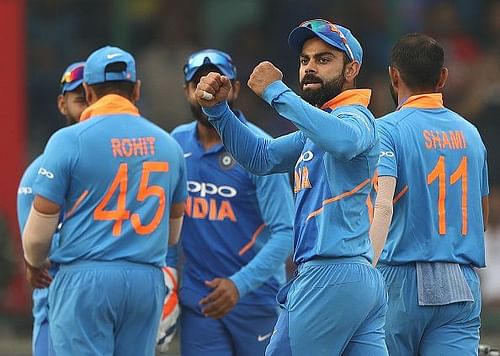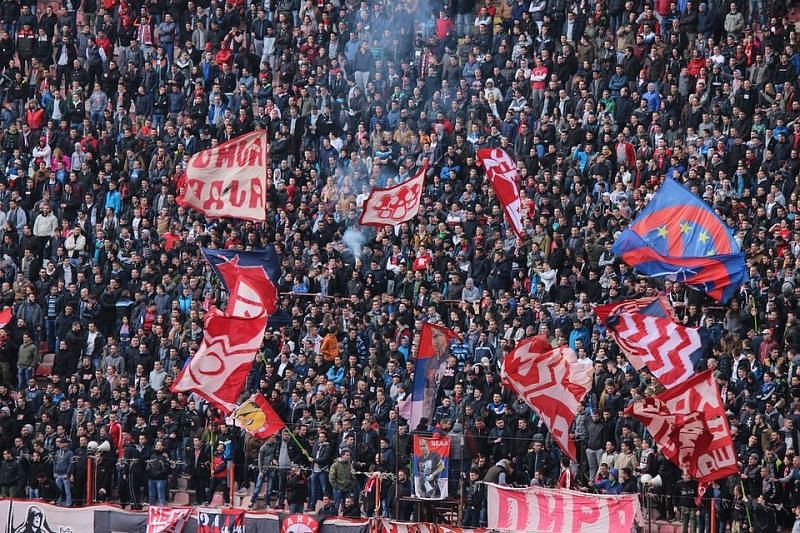
Why for a fan is it more than just a sport? Let Psychology answer it

Be it Roger Federer’s majestic forehand, Virat Kohli’s assertive cover drive, or Dipa Karmakar’s jaw-dropping Produnova, or just a sporting team rejoicing their antics on the field, the spectators chant in unison, sing in rhythm, and stomp with passion.
It’s understandable when a player shows belongingness to his teammates, but when those sitting in the stands exude the same belongingness, then it calls for an analysis and a string of questions.
Why do people follow sports so ardently? What leads to such a loyal or even fanatic behavior? Why do people paint their faces and obsess over statistics, even when there is a possibility that their team might lose?
The thing is, just like nationality, ethnicity, and gender, sports nurtures the identity of people and their emotional fabric, turning them into ardent fans and filling the vacant spaces that exist in their personalities.
While experiencing the individual brilliance of a player or an athlete, spectators get a strong sense of inspiration, as they witness something which they aspire to perform or achieve themselves.
Also, the identities that stem out of ethnicity or gender give people a sense of exclusiveness, but the ones that stem out while watching a sporting team perform at the highest level, give people a sense of inclusiveness, as they see different players from different religions, ethnicities, or socio-economic background, play as one unit.
An interesting aspect of spectators’ psyche is the fact that, even when there is a possibility of their team losing, they invest their money and time in it. There is a possibility of them getting upset in the end, yet they rally behind it.
So fandom can’t only be based on a team’s performance, not entirely for sure.
The identification is not just related to the performance of the team, but it’s based on other aspects too. In other words, there are other comforts that spectators accrue when they support a team or an individual.
For fans, its all about the experience. They may be fascinated by a team because of the certain aura that it carries. They may be fascinated by the fact that the team has a bunch of eccentric players, which makes the overall personality of the team endearing and lends a certain mystique to it. Knowing these aspects of the fan base, team owners market their team’s persona more rather than its performance. They market those aspects that resonate the most with the fan base.
Another reason or motivation that pushes people to follow a particular team is to connect socially. Identifying strongly with a team along with other fans who are equally passionate and involved, results in social-psychological well-being.
So what does social-psychological well-being mean?
A state where a person experiences higher levels of self-esteem and lower levels of alienation. Just standing beside someone wearing the same colors allows for an instant connection.
This shared identity inculcates a feeling of shared values. Moreover, such identification let spectators or fans tend to view sports not just as a form of volatile entertainment but also as a nostalgic and emotional experience.
It’s so true, as many of us remember going to a stadium as a child. A sport reminds them of the pleasurable memories of childhood.
That said, it has been observed that fans who are associated with top-performing teams, don’t turn to the above-mentioned aspects to a great extent. Such behavior is observed more in fans whose teams don’t do well at the points table. As they are not able to fill their emotional and aspirational voids by cheering for their team, they turn to individual players to fill that void.
Identification is about how we start seeing ourselves, maybe a completely unknown aspect of ourselves. We start admiring a particular sportsperson or a team that enables us to look at ourselves in a way that is very comforting or dear to us. The more we admire, the more we engage with that newfound side of ours.
This greatly influences our decision making and managerial capabilities. So you see, our engagement in sports even as a spectator has far-reaching outcomes.
The example of Chicago Cubs (American Baseball Team) can be cited in this regard. They started a Cubs Convention to capitalize on fans’ desires to remain connected to their team. At this convention, fans are invited to join players and the management over the weekend (during the offseason of course). It features autograph signings, interactive exhibits and special panels having players, alumni, and coaches.
The idea is to celebrate the previous season and set the tone for the upcoming one. The convention attracts 15,000 fans and has been a trendsetter, as so many other big-league teams are having their own conventions.

The convention broke down barriers, as it humanized the game in many ways. In the past, there was a huge communication gap between fans and the sportspersons, be it current players, former players, managers, and coaches. They weren’t accessible or approachable enough. Fans weren’t able to form relationships that were not just based on a team’s performance and went beyond.
This accessibility has become a crucial aspect in sports-marketing. Winning is important, but now it’s more about making the team accessible. When you make a team approachable for fans, you impart a sense of ownership to them. They are able to imbibe the inherent diversity and cohesiveness of the team. Not only does this result in the overall well-being of fans, but it builds long-lasting relationships among all.
Over the past few years, marketers have been catering to fans’ psyche by using relationship-building strategies, Rather than going all out to attract new fans, they are more focused on building stronger and healthier relationships with the existing ones.
It’s about making a fan say "I am a part of the team”, rather than merely saying “I’m a fan of the team".
As genuine sports lovers and someone who understands the psyche of both players and fans, we need to make the sporting ecosystem as inclusive and as interconnected as possible. A dedicated social network for sportspersons where players, athletes, and coaches from different socio-economic backgrounds can connect with one another is a great idea and can be a great beginning.